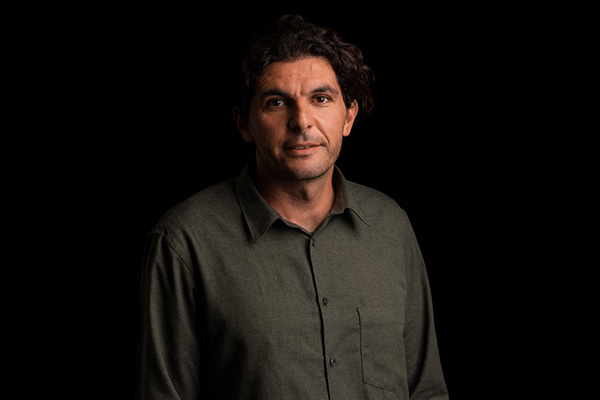Pantelis Pipergias Analytis
Research leader

Project title
Ranking-based cumulative advantage
What is your project about?
In a wide range of social and technological systems, the rank already established by options or individuals relative to a quantity of interest (e.g. status, clicks, sales) can confer an unfair advantage at the cost of less visible ones of equal or better quality. Although prevalent in everyday life, the dynamics of rank-based systems are understudied both theoretically and empirically. We plan to change that. First, we will extend our mathematical theory on ranking-based advantage to study its interactions with other types of cumulative advantage. Second, we will study how systems with ranking-based advantage affect welfare and fairness, considering a wide array of sequential choice models, and develop new insights for algorithmic design. Third, we will develop statistical techniques to (i) identify systems with ranking-based advantage and (ii) study unfolding ranking dynamics, and analyze a wide array of datasets from e-commerce, forums, and online experiments.
How did you become interested in your particular field of research?
During my PhD I studied processes of human decision making. I got particularly interested in how people make decisions in online interfaces, such as search engines and recommender systems, and I developed new models to describe people’s individual level behavior and the collective dynamics that emerge in these settings. I then gradually realized that there is a lack of (i) good behavioral models that can describe people’s choices in settings where their behavior is influenced by rankings and (ii) a general mathematical framework to describe the dynamics produced in these settings.Thus, I directed my research efforts to address these important research gaps.
What are the scientific challenges and perspectives in your project?
This project intends to advance both the theoretical and the empirical state-of-the-art and to test the hypothesis that ranking-based cumulative advantage is a major source of cumulative advantage in different real-world domains. On the theoretical side, we will seek the appropriate language, and the right assumptions to capture ranking-based rich-get-richer phenomena. The new theoretical developments will allow us to formulate precise hypotheses about the dynamics of systems with ranking-based cumulative advantage. On the empirical level, we will need to develop statistical methods for identifying ranking-effects in behavioral data, and build routines for working with big datasets, and for running online experiments. We expect that these new tools will make the study of ranking-based cumulative advantage easier for other research groups in the future.
What is your estimate of the impact, which your project may have to society in the long term?
Although we are immersed in social and technological systems that are characterized by ranking-based cumulative advantage, we still have a partial understanding of the dynamics that govern them and a limited array of strategies to mitigate their shortcomings. My earlier work shows that when left to evolve on their own rankings can reproduce existing inequalities that can be very difficult to correct in the long-term. In this project, we will use our theoretical framework, to both demonstrate the problems that emerge in systems with ranking-based cumulative advantage, and suggest strategies (e.g. algorithms or policies) for addressing their flaws, thus paving the way for building more fair and efficient social and technological systems in the future.
Which impact do you expect the Sapere Aude programme will have on your career as a researcher?
The Sapere Aude grant is a big leap forward. Some of the ideas described in the grant were first formulated in a premature form in my PhD thesis. It has been a long journey from the first conception of these ideas to finding the right language and approach to express them formally, and then to developing a research program around them. This grant gives me the resources to effectively study ranking-based cumulative advantage in the coming years, and bring the theory of ranking-based cumulative advantage, and its applications to the attention of the academic community and the wider public.
Background and personal life
I grew up in Kefalonia, an island in the Ionian sea and did my bachelor’s in Athens. Before taking up a position at the University of Southern Denmark, in 2018, I lived and worked in France, Germany and the United States. When I do not rush with scientific work, I make documentary films, learn languages, and spend time among olive-trees and vineyards in Koriani farm in Kefalonia.
View all research leaders here
Research institution
University of Southern Denmark
Research field
Business and Management
City of your current residence
Odense
High school
Petritsio Lyceum of Lixouri
